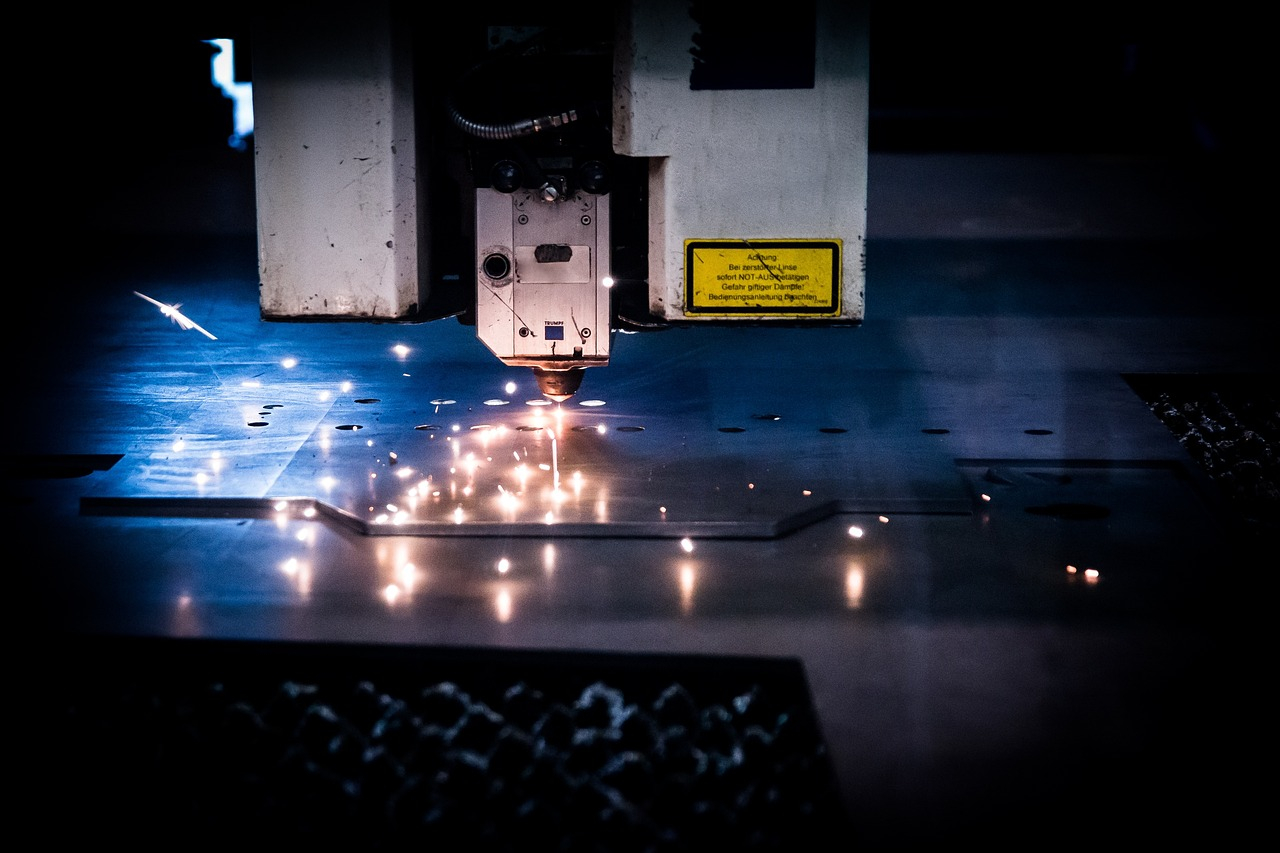Introduction to CNC Machining and Its Advantages
At the heart of modern manufacturing, CNC machining stands as a pivotal technology that streamlines production and enhances precision. This computer-controlled process manipulates complex machinery from mills to lathes, enabling the creation of detailed and consistent parts with minimal human intervention.
The cornerstone of CNC manufacturing https://www.megaplot.com/ is its precision machining capabilities. Utilizing pre-programmed software settings, machines effectively execute complicated cuts, delivering products with exact precision. For producers like you, this means fewer errors and a higher standard of quality. Moreover, the ability of CNC machining to maintain these high standards consistently over large production runs is invaluable in competitive markets where quality can distinguish top players.
CNC technology has ushered in a new era in manufacturing with its substantial advantages:
Enhanced Accuracy - CNC machines transform digital designs into physical parts with exact accuracy, significantly reducing the margin of error compared to manual methods.
Consistency - Once programmed, CNC machines can perform the same task repeatedly with minimal variance, ensuring uniformity across large production volumes.
Speed - Work that might take hours when done manually can be completed in minutes on a CNC machine. This increase in production speed allows for more rapid project turnover.
Complexity - With CNC machining, producing complex designs that would be nearly impossible by hand becomes feasible, opening up new avenues for design innovation.
Cost-Effective - Initially, the setup for CNC manufacturing might seem steep; however, the reduction in manual labor and decrease in errors cuts down long-term costs significantly.
Embracing CNC machining not only advances your production capabilities but also gives your operations a distinct competitive advantage in the dynamic manufacturing market. Whether you're dealing with single prototypes or mass production runs, the scalability offered by CNC technology ensures that your manufacturing processes keep pace with demand and complexity.
Understanding Computer Numerical Control Technology
At its core, computer numerical control (CNC) technology marks the evolution of modern machining where high levels of production and precision are paramount. Whether you're delving into manufacturing or curious about the underpinnings of CNC machinery, there are key concepts to comprehend about this innovative technology.
CNC technology utilizes detailed, encoded instructions from computer software to control every aspect of a machine’s operation, significantly increasing the efficiency and complexity of manufacturing processes. From automotive parts to intricate furniture designs, CNC equipment facilitates the creation of detailed, high-quality products under stringent specifications.
Operation - CNC machines start with a computer-generated model, then translate this model into numbers and coordinates. This translation dictates the exact movements of the machinery, ensuring precision and repeatability.
Components - At the heart of CNC equipment are the central processing unit (CPU) and an array of motor-driven systems, all designed to function seamlessly under software control for optimal performance.
Software - The specialized software that drives CNC machines is capable of complex simulations and adaptations, allowing machine tools to execute demanding tasks with minimal human supervision.
Understanding CNC technology is essential for maximizing its capabilities in manufacturing. The proper application and maintenance of CNC equipment not only augment the quality and speed of production but also empower innovations across various industries.
The Role of Precision in CNC Manufacturing
In the realm of CNC manufacturing, the need for precision machining is not just a premium feature—it's essential. Imagine you're crafting a complex component that must fit seamlessly within a larger assembly. Any deviation, even minuscule, could lead to product failure or safety risks. This is where high-precision CNC machine tools come into play, enabling you to maintain strict tolerances that are crucial for high-quality outputs.
Precision in CNC manufacturing impacts every stage of the production process. From the initial design to the final product, every element must be executed with the utmost accuracy. This rigorous standard ensures that the parts produced not only meet but often exceed, the performance and reliability expectations.
Enhanced Accuracy - Precision machining allows for the production of parts with extremely tight tolerances, ensuring that every component fits perfectly with the next.
Reduced Waste - With precision CNC machine tools, materials are used efficiently, reducing scrap and ultimately lowering costs.
Improved Consistency - High-precision tools guarantee that each part is identical, which is crucial for large scale production runs where consistency is key.
Superior Aesthetics - Precision tools also yield superior surface finishes, enhancing the visual and tactile quality of the components.
As a result, industries that demand exacting standards, such as aerospace, medical devices, and automotive, rely heavily on CNC machine tools for their manufacturing needs. For you, having access to such tools means being able to deliver products that are not only effective but also highly reliable and consistent in quality. Remember, in CNC manufacturing, achieving precision is not an option—it's a necessity for success.
Top Features to Look for in CNC Machine Tools
When you're in the market for CNC machine tools, understanding the features that can significantly enhance efficiency and productivity within your operations is crucial. CNC equipment has evolved, integrating various advanced functionalities that align perfectly with the needs of industrial automation. Here's a closer look at what to consider to ensure you choose the best options available that meet your specific industrial requirements.
Automation Capabilities - The ability of CNC machine tools to integrate seamlessly into existing industrial automation systems is invaluable. Look for tools that support automation features like automatic tool changers, part recognition, and software interfaces that facilitate streamlined operations.
Machine Tool Versatility - Versatile CNC equipment can handle multiple operations, from cutting and drilling to milling and turning, without needing multiple setups or machines. This adaptability not only saves time but also reduces costs associated with maintaining numerous machines.
Speed and Precision - High-speed CNC machine tools that maintain precision are key assets in any manufacturing setting. They contribute to faster production rates while ensuring that each piece meets exact specifications, which is crucial for quality control and client satisfaction.
Software Compatibility - Ensure that the CNC machine tools are compatible with the latest software used in industrial automation. This compatibility helps to update and optimize workflows easily and enhances your ability to adapt to new manufacturing processes and materials.
Support for Advanced Materials - As industries innovate, so too should the capabilities of CNC machine tools. Look for equipment that can handle advanced materials like composites, titanium, and high-temperature alloys with ease, ensuring your operations can adapt to market demands.
Focusing on these key features will help you select CNC machine tools that are not only efficient but also future-proof, aligning well with the broader trends in industrial automation. This informed approach will maximize your investment and enhance your competitive edge in an evolving industrial landscape.
CNC Machines - Exploring Different Types and Their Uses
When you delve into the world of CNC manufacturing, you'll discover a vast range of CNC machines each designed to meet specific production needs. Let’s explore the different types of CNC machine tools and understand how each one is tailored for particular tasks within various industries.
Milling Machines - The backbone of machining, these devices perform cutting and drilling to shape materials. Ideal for complex geometries like gears.
Lathes - Essential for producing symmetrical objects, CNC lathes rotate the workpiece against a cutting tool. They're perfect for creating bolts and cylindrical parts.
Laser Cutters: - These machines use high-powered lasers to slice through materials with extreme precision. They are excellent for fine detailing and work on a variety of materials including metal and plastic.
Plasma Cutters - Similar to laser cutters, but utilize plasma for cutting through electrically conductive materials, ideal for heavy industry applications.
Electric Discharge Machines (EDM) - Known for their fine accuracy, these are used to shape materials through electrical sparks that melt and vaporize the material.
Water Jet Cutters - Utilizing high-pressure water jets, possibly mixed with abrasives, suitable for materials that are sensitive to high temperatures generated by other methods.
Each type of CNC equipment plays a pivotal role in cnc manufacturing, helping to optimize processes and enhance productivity. By understanding how these CNC machine tools operate, you can make more informed choices that align with your specific manufacturing needs.
How to Choose the Right CNC Equipment for Your Needs
If you are on the hunt for the ideal CNC equipment to drive your manufacturing projects forward, you're likely aware that this is a decision that requires careful thought and due diligence. The wide range of CNC technology available today can be tailored to meet your specific production needs, making it imperative to select a machine that aligns closely with your objectives. This section aims to guide you through some key considerations that will help you discern the most suitable CNC machines for your unique operations.
Start by evaluating your current project requirements and take into account the potential for future expansion. The versatility and scalability of CNC equipment mean that a machine that can adapt to new tasks could be a more sustainable investment. When budgeting, look beyond the initial acquisition costs and consider the long-term value; aspects like energy efficiency, speed, and downtime can vastly influence overall expenses. Availability of space also plays a crucial role – ensure that you have ample room for operation and that the size of the machine won't restrict your workflow.
Lastly, the availability of technical support and regular maintenance should factor into your decision-making process. A machine is only as good as the service backing it, and reliable customer support can make a significant difference in operational efficiency. As you prepare to make this important investment in CNC technology, focus on durability, precision, and the ability to enhance your productivity. Remember, the right CNC equipment can elevate your manufacturing capabilities and support the success and growth of your business.





